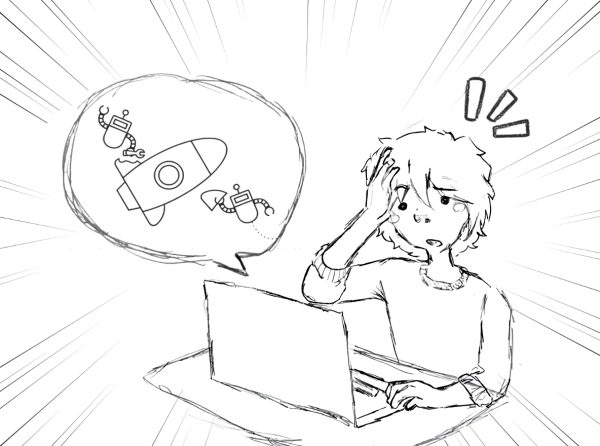Homemakers and housewives: who is feminism leaving out?
Commitment to the career woman leaves little space for women at home
January 30, 2020
From its beginning in the 19th century, feminism has been about protecting women, which requires securing them financial independence. Even in more affluent, Western countries, this seems stagnated. Before the Equal Credit Opportunity Act of 1974, women in the United States could be denied credit cards on the basis of being unmarried or divorced. Two years later, Irish women were finally able to own their own homes. In the United Kingdom, no-fault divorce has still not been implemented, making it potentially difficult for women to separate from their husbands without explicit proof of harm.
In the past, and in many countries around the world today, women have been given property rights equal to those of children, with nothing to lean on if their husbands leave, and no way to leave if their husbands mistreat them.
The freedom of women from their obligatory social status as housewives in the United States is essential to female flourishing, and while many issues of inequality still pervade women’s lives, the ability to get jobs has been impactful both to women as a social class, and to government and legislature around the world.
So where do the women who want to “just” be mothers fit in today’s society, where women have fought so hard to break those chains? The word “housewife” carries baggage, a constraint so strongly fought against by the feminist leaders of history.
The modern millennial woman is more educated than her male counterpart, and women make up nearly half of the US labor force. With the relatively recent boom of women in the workforce, some women are feeling embarrassed about the lives that they want — lives filling the traditionally feminine roles of homemaker and stay-at-home mother.
Caitlin Huber, known online as Mrs. Midwest, is perhaps the most well-known face for the modern housewife movement. Blogging about developing femininity and her life as a homemaker, Huber makes videos for women and girls who want to develop their femininity and, on become homemakers.
Uninterested in forcing opinions, Huber and the majority of her community have no belief that women’s sole role is in the home caring for children — they simply believe that this is the role that they want to fill.
“My answer is not to go back to a place where we shame career-people, where we shame people who aren’t Christian, where we shame people who aren’t traditional,” Huber said in a video. “Just because we’ve received liberation for career-women doesn’t mean we need to turn around and shame stay-at-home moms.”
Many, however, react strongly to this lifestyle.
Some less-supportive threads about Huber online express comments such as “She’s disgusting. We don’t need to learn how to be feminine. Society needs to treat gender as equal.”
These knee-jerk reactions may be understandable, but stray away from the idea that women can really be anything they want.
This negativity towards traditionally-minded women has a stark contrast to the extreme positivity that stay-at-home dads receive, a role that has been on the rise over the last decade.
The praise for men “redefining their manhood” is heard ringing throughout feminist circles. According to the Pew Research Center, the amount of stay at home dads doubled from 1989 to 2012. These men are honored for their commitment to family, sacrifice to their wives and, many hope, breaking the stereotype of absent fathers.
Pew also published a survey, however, which states that only 21% of men stated that their reason for being home was caring for their homes and families. 35% stated that they were the stay at home parent due to disability. This is notably different from the statistic of 73% of women who are stay-at-home mothers for the purpose of caring for home and family, and 11% at home due to illness or disability.
No woman should be forced to be a housewife or have children, but every woman should have the right to choose the life they want for themselves.
Shaming young women for their desire to fill roles that are particularly feminine moves away from empowering women, and that same shame drives a message that idealizes masculinity. Shaming young women for their dreams harkens back to an idea that Western society claims to have distanced itself from long ago.
Elske Rahill, writing for The Irish Times, summarizes this idea in an article about her struggle about feeling ‘feminist’ as a stay-at-home mom.
“Not all women are mothers,” she said. “Not all women want to be mothers. Not all women can be mothers. But many of us are, and all of us have come from a womb. As long as we denigrate maternity, we are denigrating women.”



























































































Katherine • Aug 23, 2020 at 9:17 pm
No woman should be forced to be a housewife or have children, but every woman should have the right to choose the life they want for themselves.”
”
This may be a reasonable and valid view, but it is invalidated by the widespread view that men should not have this choice.
If anybody is being “left out”, it is those men who aspire to being housewives but are not recognized as a legitimate (or possible) demographic group and thus do not enjoy “the right to choose the life they want for themselves”.
That a mere 21% of men fortunate enough to enjoy this role have actually chosen it is testimony only to the reality of a harsh social rejection of men who do not elect roles imposed on them by a hypocritical society, strongly represented by Feminists who argue only for the enjoyment of male “benefits”by women but not the disadvantages.